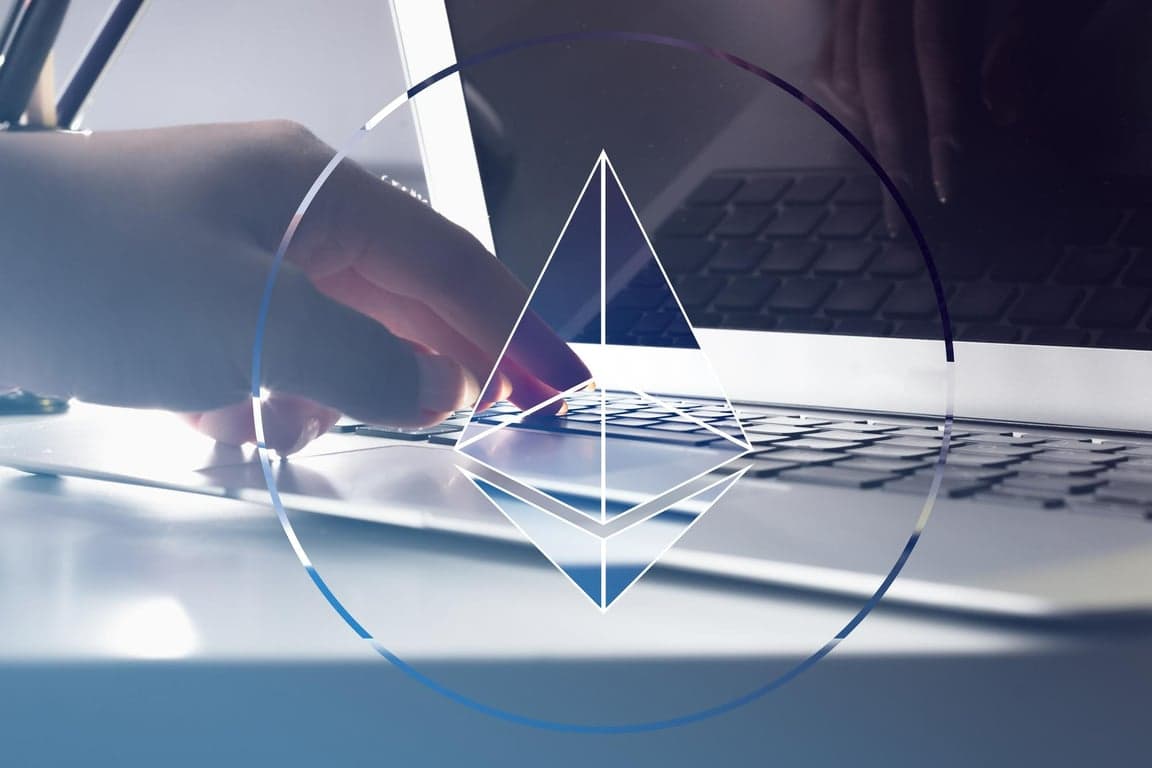 ✍️ How to Use Comparatives (e.g., faster than, more secure than)
✍️ How to Use Comparatives (e.g., faster than, more secure than)
When you want to compare two things in blockchain, like networks, tokens, or protocols, you use comparatives.
Comparatives help you say that something is more or less than something else. For example:
Ethereum is faster than Bitcoin.
Bitcoin is more secure than Dogecoin.
Let’s learn how to build comparative sentences.
🧱 Basic Rule for Comparatives
Comparative = Adjective + than
You use than to compare two things.
But how you change the adjective depends on how long the word is.
📏 Rule 1: One-syllable adjectives → Add –er + than
If the adjective is short (one syllable), just add -er.
NOTE: A syllable is one beat in a word, like 'cat' (1 beat), 'water' (wa-ter, 2 beats), or 'banana' (ba-na-na, 3 beats).
Examples:
fast → faster than
Solana is faster than Ethereum.cheap → cheaper than
Polygon is cheaper than Ethereum.slow → slower than
Bitcoin is slower than Avalanche.
Note: If the adjective ends in -e, just add -r
Example: large → larger than
✍️ Special case: If the adjective ends in one vowel + one consonant (like “big”), double the final consonant before adding -er:
big → bigger than
This block is bigger than the last one.
📏 Rule 2: Two-syllable or longer adjectives → Use more + adjective + than
If the adjective has two syllables or more, use more.
Examples:
secure → more secure than
Bitcoin is more secure than most altcoins.expensive → more expensive than
Ethereum gas fees are more expensive than Optimism’s.efficient → more efficient than
Smart contracts are more efficient than traditional legal contracts.
🧠 Irregular adjectives (special forms)
Some adjectives don’t follow the usual rules. Here are the most common:
good → better than
Arbitrum is better than Ethereum for gas costs.bad → worse than
Unconfirmed blocks are worse than final ones.far → farther than or further than (doesn't matter which one you use)
Layer 2 (L2) solutions go further than basic scaling.
✍️ How to Use Superlatives (e.g., the fastest, the most secure)
Superlatives help you talk about one thing that is the best, the biggest, or the most in a group. You use them when comparing three or more things.
Examples:
Solana is the fastest blockchain.
Bitcoin is the most secure network.
We use superlatives to show that one thing stands out from all the others.
🧱 Basic Rule for Superlatives
Superlative = the + adjective + est Or Superlative = the most + adjective
Like comparatives, the form depends on how long the adjective is.
📏 Rule 1: One-syllable adjectives → Add -est
If the adjective is short (one syllable), just add -est.
Examples:
fast → the fastest
Solana is the fastest blockchain we've tested.cheap → the cheapest
Polygon has the cheapest gas fees.slow → the slowest
Bitcoin is the slowest among these networks.
Note: If the adjective ends in -e, just add -st
Example: large → the largest
Special case: Double the last consonant for words like big
big → the biggest
That was the biggest block of the week.
📏 Rule 2: Two-syllable or longer adjectives → Use the most + adjective
If the adjective has two syllables or more, use the most.
Examples:
secure → the most secure
Bitcoin is the most secure blockchain.expensive → the most expensive
Ethereum is the most expensive network to use.flexible → the most flexible
Smart contracts are the most flexible part of Web3.
🧠 Irregular adjectives
Some adjectives change completely:
good → the best
Arbitrum is the best for fast and cheap transactions.bad → the worst
This protocol had the worst uptime last year.far → the farthest / the furthest
This node is the farthest from the server.
Here is a chart to summarize what we've learned so far.
Adjective | Comparative | Superlative | Example |
|---|---|---|---|
fast | faster than | the fastest | Solana is faster than Ethereum. Solana is the fastest protocol. |
slow | slower than | the slowest | Bitcoin is slower than Solana. Bitcoin is the slowest here. |
secure | more secure than | the most secure | Bitcoin is more secure than many altcoins. It is the most secure. |
efficient | more efficient than | the most efficient | Polygon is more efficient than Ethereum. It’s the most efficient. |
expensive | more expensive than | the most expensive | Gas on Ethereum is more expensive than on Arbitrum. |
cheap | cheaper than | the cheapest | Avalanche is cheaper than Ethereum. It’s the cheapest alternative. |
good (irregular) | better than | the best | Ethereum is better than Ethereum Classic. It's the best option. |
bad (irregular) | worse than | the worst | High gas fees are worse than low throughput. That’s the worst case. |
NOTE: If the adjective is the last word of the sentence, there is no need for 'than'.
Bitcoin is considered the most secure network, but Ethereum is more scalable.
Ethereum may be more popular, but Solana is cheaper.
🔗 Comparing and Contrasting with Connectors
When you want to explain how things are similar or different, you can use special words called connectors. These help your reader or listener follow your ideas clearly.
There are two main types:
Compare: Show similarities
Contrast: Show differences
Let’s look at both.
🟢 1. Compare — Show Similarities
These connectors help you say how two things are the same or similar.
Connector | Use Example |
|---|---|
both … and … | Both Solana and Arbitrum have fast transaction speeds. |
similarly | Avalanche processes transactions similarly to Solana. |
like | Like Ethereum, Optimism supports smart contracts. |
in the same way | In the same way as Bitcoin, Litecoin uses proof of work. |
also | Polygon is cheap to use. Arbitrum is also inexpensive. |
🔴 2. Contrast — Show Differences
These connectors help you say how two things are different.
Connector | Use Example |
|---|---|
but | Ethereum has high gas fees, but it is more secure. |
however | Bitcoin is secure. However, it is slow and expensive. |
unlike | Unlike Ethereum, Bitcoin does not support smart contracts. |
while | While Arbitrum is an L2, Solana is a L1 chain. |
on the other hand | Ethereum is more secure. On the other hand, Solana is faster. |
by contrast | ZKsync Era is an L2 chain. By contrast, Solana is an L1 |
compared to | Compared to Aptos, Solana has a larger trading volume. |
✨ Tip for Fluency:
Try using a mix of comparing and contrasting connectors when describing protocols:
Solana and Sui are both fast. However, unlike Solana, Sui uses a different consensus design. In the same way as Ethereum, Sui supports smart contracts.
🔗 Solana vs Ethereum: A Language and Blockchain Comparison
When comparing blockchain protocols, Solana and Ethereum are two of the most widely discussed. Each has its strengths and weaknesses, and understanding these differences not only helps in technical decision-making but also offers a great opportunity to practice comparative, superlative, and connector language.
🏢 Dialogue: Choosing a Blockchain Platform
Characters:
Sarah – Product Manager
Jake – Lead Developer
Sarah:
So, Jake, we need to decide which blockchain to build our new app on. Right now, we’re considering Solana or Ethereum. What are your thoughts?
Jake:
Good question. Both platforms support smart contracts, but they’re quite different in how they operate.
Sarah:
I’ve heard that Solana is faster. Is that true?
Jake:
Yes. Solana is much faster than Ethereum. It can handle thousands of transactions per second, while Ethereum does about 15–30. In the same way, Solana also has shorter block times, which means users don’t have to wait as long.
Sarah:
That sounds promising. However, isn’t Ethereum more established?
Jake:
Absolutely. Ethereum is the most popular platform for decentralized apps (dApps) right now. It has the largest developer community and the widest support for tools and wallets. Like Google for search engines, Ethereum is the standard in the space.
Sarah:
Hmm. On the other hand, we want low transaction fees, right?
Jake:
Exactly. Solana is cheaper than Ethereum by a lot. A typical transaction on Solana costs less than a cent. By contrast, Ethereum’s gas fees can be several dollars. Especially when the network is busy.
Sarah:
So Solana is faster and cheaper, but Ethereum is more popular and more secure?
Jake:
That’s a good summary. While Solana has had issues in the past, it's been running without downtime for over a while now. Still, Ethereum has the longest track record for security.
Sarah:
Got it. What about composability?
Jake:
Ethereum is more composable than Solana in some ways because so many dApps are built there. Both Solana and Ethereum support smart contracts, but Ethereum has more mature decentralized finance (DeFi) protocols.
Sarah:
That’s useful. I guess it depends on what we value most: the cheapest and fastest, or the most established and widely supported.
Jake:
Exactly. If we want speed and scale now, Solana might be the best choice. However, if we want to tap into the existing Ethereum ecosystem, that could save us work later.
Sarah:
Let’s write up a quick pros and cons list. That might help us decide.
Jake:
Sounds good. Let’s get to it.
💡 Key Takeaways
The dialogue above demonstrates how essential these comparative and contrasting structures are in real-world professional discussions within Web3. Using phrases like "faster than," "more secure than," and "the most popular" allows you to deliver clear, definitive opinions that drive decision-making. Furthermore, mastering connectors such as "however," "unlike," and "while" is crucial for fluent conversation. These words allow you to pivot smoothly between opposing ideas, acknowledge trade-offs, and structure complex technical arguments logically. Correct usage of this language instantly makes your analysis more nuanced, persuasive, and professional.
🏆 Complete the Lesson
You’ve taken another step towards becoming fluent in Web3. Now, let’s lock in that knowledge. Test your understanding and see how much you've learned.



